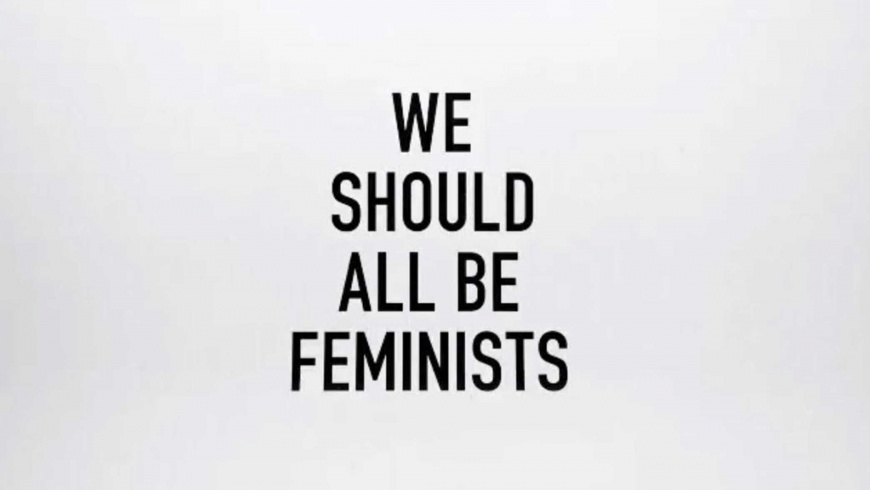We Should All Be Feminists

Written by Sashai Yhukutwana
“We Should All Be Feminists is a brief and amusing book. You can bank on it being highly educational, too. One cannot help but have “Aha” moments. Although, they may perhaps come out as a cringe-worthy “Oh dear” or a resigned “Yeah, I know all about that!” Author Chimamanda Adichie offers a glimpse into her personal experiences and musings on the absolute validity of feminism and its place in modern times – particularly in the context of African women in African society. She explores the significance of what it means to be a woman in a man’s world, something a huge majority of women can identify with. It is, hopefully, a perspective that men may appreciate, too.
Her essay is lively and engaging. Succinct, yet deep in that it invites the imagination to pursue the debugging of cultural programming in the evolution of relational man. It challenges accepted norms that downplay or outright ignore, even spurn, women and their significant contributions, while placing the male counterpart as superior or leader in all situations without question, unconsciously or otherwise. A broader horizon of acceptance, tolerance, and collaboration is offered – and begged for – to lead us to the real possibility of an exciting, creative, and collaborative future that receives a person as they truly are, without discrimination, in all their feminine or male glory.
Socio-historical Context
Many stereotypes exist in and about Africa as a whole. In this particular instance, Adichie, herself a Nigerian woman, speaks of the ideal and true meaning of what a feminist is or how feminism should be perceived, while challenging and unpacking the limits presented in abiding gender roles and stereotypes in the African context. This stereotyping, in turn, is internalized as a practiced reality. A reality that tends to stifle meaningful inclusion and awareness for a large portion of the African society: its women, to be exact. Enter patriarchy, a deeply entrenched social system in many parts of the continent, with a decidedly male voice defining its perception of what a woman is and where she fits in in society, without consulting her, nor learning about her unique qualities and complexities – to an extent that even women themselves are complicit in enforcing its tenets, sometimes unconsciously, but also to the ends of amassing power and status in their identified spheres of influence. We Should All Be Feminists, therefore, steps in to help us pause and truly see how culture has played us historically and given us a weak assumption of how we can truly reach for a higher existence as relational beings.
Writing Style
We Should All Be Feminists was adapted from a talk Adichie delivered in December 2012 on TEDxEuston, a platform staged annually to host conferences focused on Africa and its hot issues. Anecdotal and autobiographical, no time is wasted in abstract preamble, but one is drawn immediately to the thought being appraised, in both a philosophic and practical sense. It is almost conversational, as if you are sitting right next to Adichie as she tells her stories. Many questions are included toward the end of her thought patterns, suggesting that this is no self-help kind of essay, but rather a call to honest introspection and encouragement to see beyond what culture has defined in relationships and communication.
My Thoughts
I enjoyed this book immensely and can see myself reading it over and over again in the future. I was amazed at the familiarity I felt as Adichie told her stories as I could see my own personal experiences in them, and just had to laugh at the fact that I finally get why I mentally and physically rebelled in my heart against what I now understand to have been patriarchy and gender discrimination playing out in so many ways in all of my life! Of course, feminism is not always a black-and-white issue; it has so many gray areas, which individuals should have the space to navigate freely. This, in itself, has been a huge task in my adult life because it means educating others in how to allow me that sacred space – allowing me to find me and my own place in this world amid all the obstacles and trappings of human relations. Prepare to be challenged in a way you do not expect to be, especially in those closely held beliefs we each carry. On the other side is greater self-awareness, respect, and dignity. Not just for women, but for all the beautiful beings populating this earth. We all deserve it!




